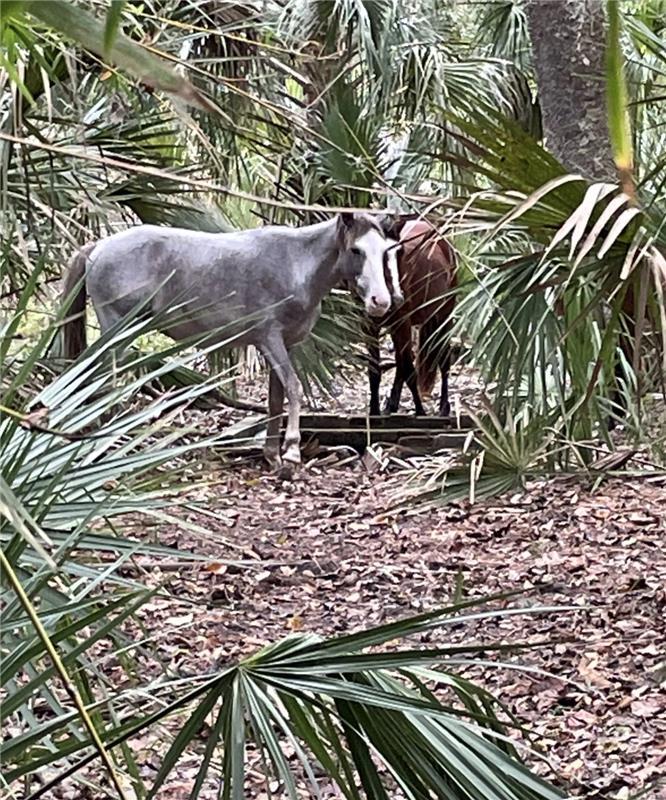
Section Branding
Header Content
Horses of Cumberland file suit
Primary Content

The horses of Cumberland Island are plaintiffs in a lawsuit filed earlier this month against Georgia and federal officials. The 65-page complaint filed April 12 in U.S. District Court in Atlanta alleges the defendants have allowed the horses to suffer at the same time the horses themselves have damaged the island and its native species.
The estimated 140-170 feral horses on the island receive no food, water, or veterinary care. The mares, which are continually pregnant or nursing, are especially prone to malnourishment. The suit seeks to force the horses’ removal from Cumberland, and to compel the Equine Division of the Georgia Department of Agriculture to make sure they’re cared for humanely until they can be removed.
“For over a quarter century, Defendants — each of which have varying
degrees of responsibility for management of Cumberland’s natural resources and
wildlife — have permitted less-than-humane conditions to be imposed on the
Island’s feral horses,” the complaint states. “For over a quarter century, the Defendants have known of the destructive impacts to the island’s resources caused by feral horses.”
The horses are joined as plaintiffs in the suit by the nonprofit Georgia Equine Rescue League, the nonprofit Georgia Horse Council, Cumberland resident and naturalist Carol Ruckdeschel, and author Will Harlan, who wrote a 2015 New York Times bestseller about Ruckdeschel. Athens-based Attorney Hal Wright and Madison-based C. Wilson DuBose are representing the plaintiffs.
Wright sent a demand letter to federal and state officials in late August threatening to sue if the service didn’t start managing the herd. The agencies were not moved.
The suit names as defendants Interior Secretary Deb Haaland, Director of the NPS South Atlantic and Gulf Region Mark Foust, Cumberland Island National Seashore Superintendent Gary Ingram, Georgia Department of Natural Resources Commissioner Mark Williams, and Georgia Agriculture Commissioner Tyler Harper.
The horses, descendants of domesticated horses brought to the island at various times, have trouble finding enough to eat and drink on an island covered in salt marsh and maritime forest. Their efforts to forage degrade the marshes and sand dunes and harm threatened and endangered native species including loggerhead sea turtles and piping plover.
Wright, the horses’ counsel, declined to comment on the suit. None of the defendants responded immediately to a request for comment. The federal officials named as defendants have 60 days to respond, while state officials have 21 days.
This story comes to GPB through a reporting partnership with The Current.

